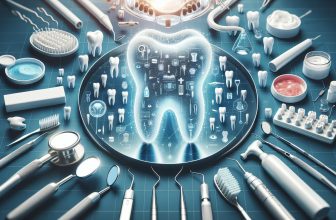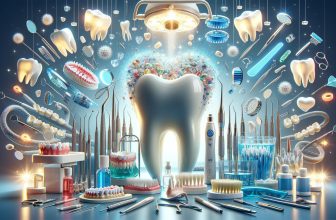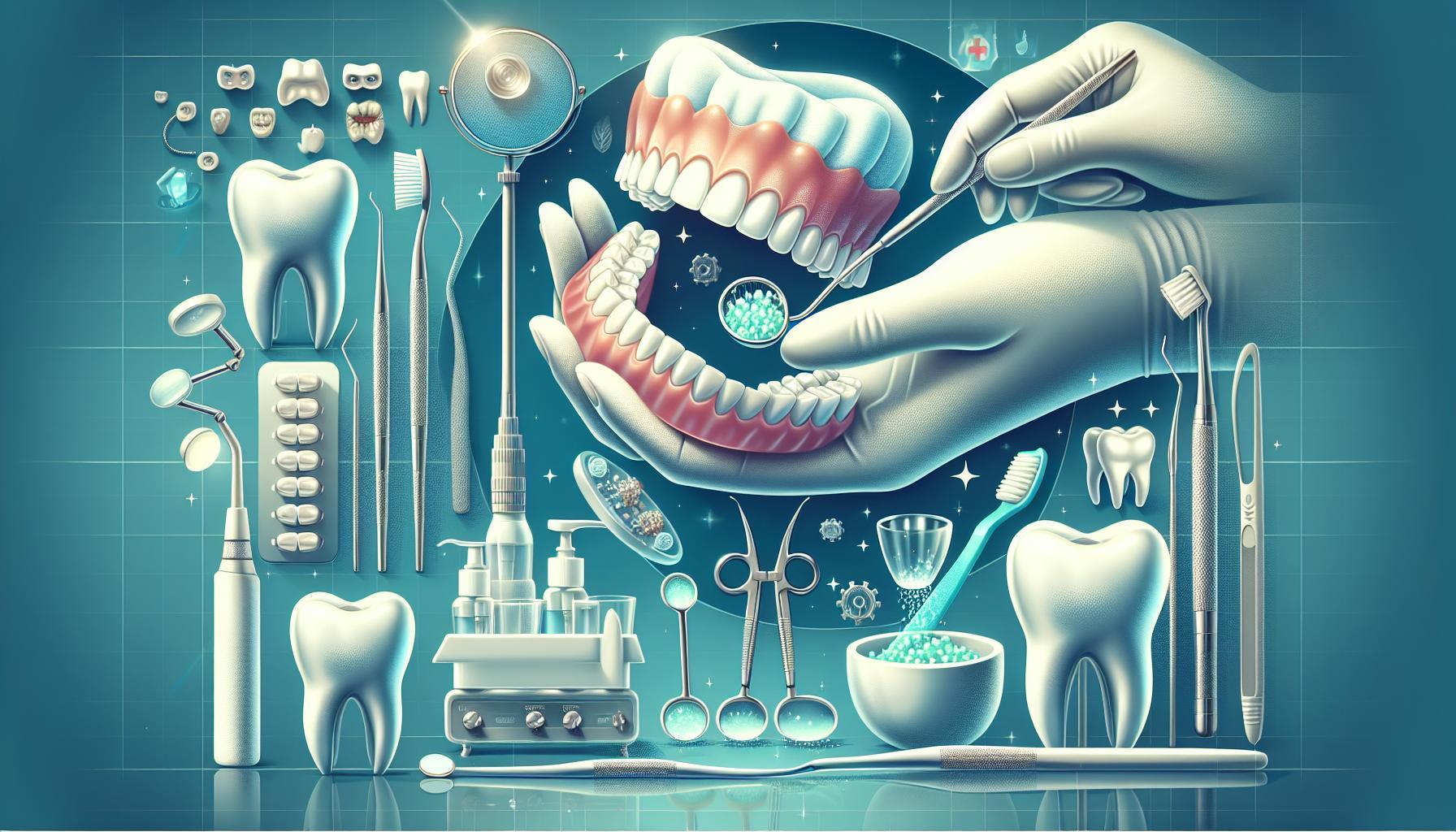
Neglecting to clean your teeth before bedtime can lead to a host of oral health issues, from cavities to gum disease. Understanding the risks associated wiht skipping this essential nightly routine is crucial for maintaining a luminous smile and overall wellbeing. This article explores the dangers of nighttime neglect and offers practical solutions to safeguard your dental health.
The Silent Dangers of Skipping Nightly Dental Care
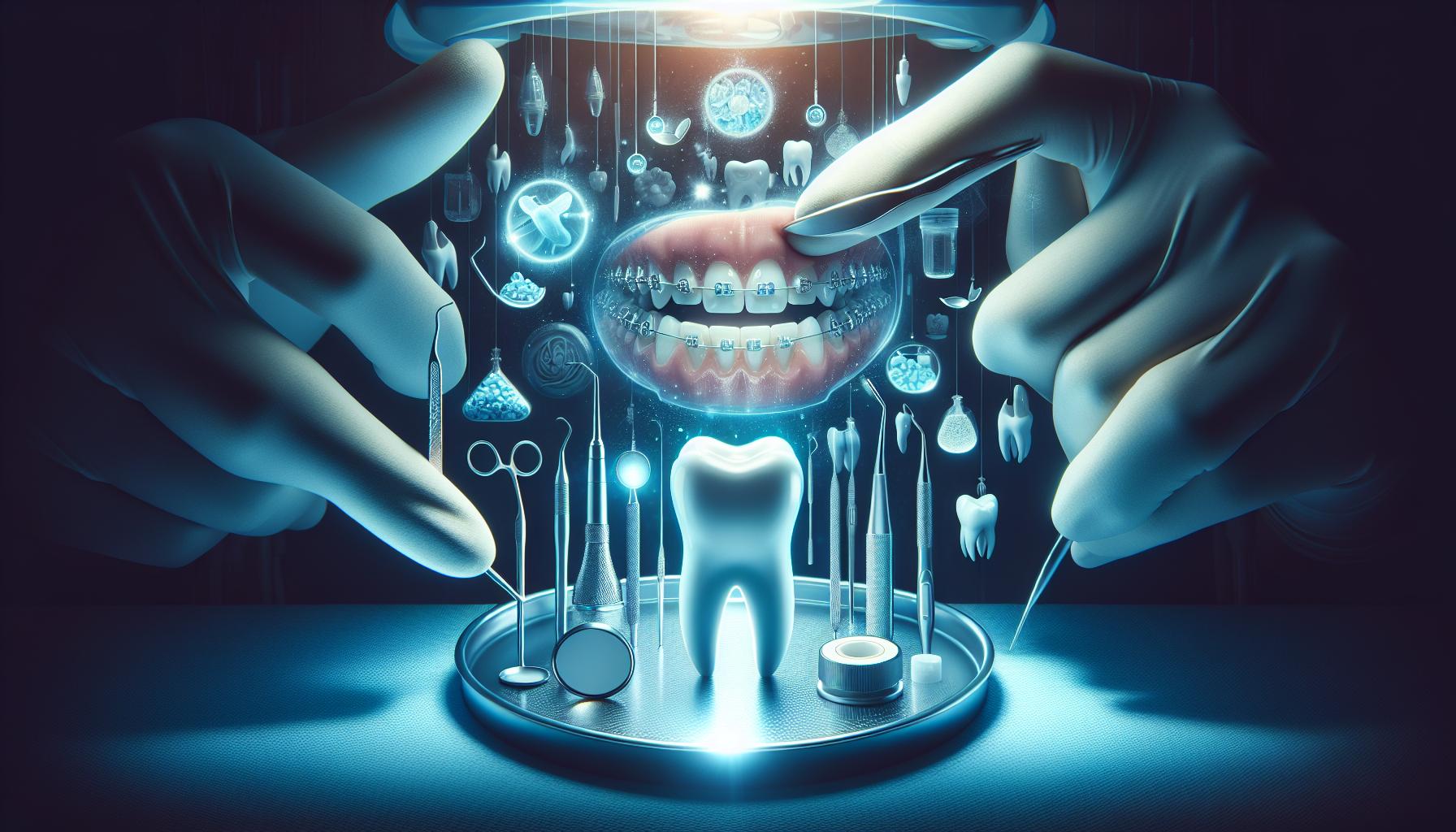
skipping nightly dental care might seem harmless, but the consequences can be far-reaching and detrimental to your oral health. Each night, your mouth becomes a breeding ground for bacteria, and neglecting to brush allows these harmful microorganisms to thrive. This can lead to a host of dental issues that aren’t instantly apparent but can have severe implications over time.
The Hidden Consequences of poor Nightly Hygiene
one of the primary dangers of not brushing your teeth at night is the accumulation of plaque. This sticky film, composed of bacteria and food particles, hardens into tartar if not removed. Tartar can only be eliminated through professional dental cleaning, increasing the risk of cavities and gum disease. Additionally, neglecting your nightly dental routine can lead to bad breath, which is often a source of embarrassment in social situations.
- Increased risk of cavities: The acids produced by bacteria in your mouth can demineralize enamel, leading to decay.
- Gum disease: Plaque buildup can cause inflammation of the gums, known as gingivitis, which can progress to more severe periodontal disease.
- Halitosis: Failing to brush can result in an accumulation of odor-causing bacteria, leading to chronic bad breath.
Long-Term Effects on your Health
The ramifications of skipping nightly dental care extend beyond the mouth. Research suggests a direct link between oral health and systemic conditions. Bacteria from gum disease can enter the bloodstream, potentially contributing to heart disease, diabetes, and respiratory issues. Therefore,maintaining a diligent nightly brushing routine not only protects your dental health but also supports your overall well-being.
| Dental Issue | Potential Health Risks |
|---|---|
| Cavities | Pain, infection, and tooth loss |
| Gum Disease | Heart disease, diabetes complications |
| Bad Breath | Social and psychological discomfort |
actionable Tips for Consistent Nightly Care
To mitigate these risks, establish a consistent nightly dental care routine. Here are some practical steps:
- Set a reminder: Use your smartphone to set a nightly reminder to brush your teeth.
- Make it enjoyable: Choose a toothpaste flavor you like and consider playing music or a podcast while you brush.
- Pair brushing with another routine: Link brushing your teeth to another nightly habit, like washing your face or reading a book, to strengthen your commitment.
by prioritizing your nightly dental care, you not only protect your teeth and gums but also invest in your overall health. Don’t let the silent dangers of neglect slip by unnoticed; make brushing before bed an integral part of your routine.
Why Do People Neglect Nighttime Brushing?
Reasons for Neglecting Nighttime brushing
Many individuals underestimate the importance of nighttime dental hygiene, leading to the common habit of skipping brushing before bed. One critically important factor contributing to this oversight is fatigue. After a long, exhausting day, the thought of a thorough oral care routine can feel overwhelming. Instead of taking a few minutes to brush, many opt to go straight to bed, sacrificing their oral health in the process.
Another contributing factor is lifestyle habits. For those who lead busy lives, nighttime routines can often feel rushed or secondary to other responsibilities, such as work, family, or social commitments. This prioritization can lead to neglecting seemingly minor tasks like brushing, despite the long-term consequences associated with this choice. The misconception that brushing is only necessary in the morning further perpetuates this neglect, as individuals may feel they can forgo nighttime hygiene without any immediate repercussions.
The Role of Awareness and Education
Not brushing teeth at night can result in various oral health issues, including cavities, gum disease, and bad breath. A lack of awareness about these risks fuels negligence. Many people simply do not realize how bacteria buildup overnight can exacerbate dental problems. According to various studies, including insights from dental professionals, nighttime brushing effectively removes plaque that can harden into tartar if left unaddressed, leading to severe dental complications over time [1[1[1[1].
Moreover, social and environmental factors also play a critical role. Some individuals may have grown up in households where nighttime brushing was not emphasized, leading to a lifelong pattern of neglect. This trend can perpetuate cycles of poor dental care across generations, as children model their parents’ habits. Schools and communities that do not prioritize or educate on oral hygiene further cement this neglect, highlighting the need for increased awareness and better education on the importance of regular nighttime brushing.
Practical Tips to Combat Neglect
It is essential to adopt strategies that encourage more consistent nighttime dental care. Here are a few practical tips:
- Create a Routine: Incorporate brushing as a fixed part of your nighttime routine, just like washing your face or putting on pajamas.
- Set Reminders: Utilize smartphone reminders or an alarm to prompt you to brush your teeth before bed.
- Keep Your Supplies Handy: Place your toothbrush and toothpaste near your bed or in the bathroom to make the process easier and more accessible.
- Educate Yourself: understanding the risks associated with neglecting nighttime brushing can motivate you to prioritize this crucial part of your dental hygiene routine.
By making a conscious effort to integrate these practices into your evening routine, you can mitigate the risks associated with nighttime negligence, ensuring better oral health well into the future. Remember, neglecting to brush your teeth at night has significant implications that can be easily avoided with just a few added minutes of care.
Recognizing the Signs of Poor Oral Hygiene
Did you know that neglecting your nightly brushing routine can lead to serious oral health issues? Poor oral hygiene often starts subtly, but the signs can escalate quickly if left unaddressed. Understanding these early indicators is crucial for maintaining a healthy smile and avoiding the complications associated with not brushing your teeth at night.
Common Indicators of poor Oral hygiene
- Bad Breath: Persistent bad breath, or halitosis, is often one of the first signs that your oral hygiene is slipping. Bacteria build up when food particles are left on your teeth, producing foul odors.
- Visible Plaque or Tartar: If you notice a sticky film on your teeth,this is plaque—bacteria that accumulates when teeth aren’t brushed regularly. If plaque hardens,it turns into tartar,which can only be removed by a dental professional.
- Gum Issues: Signs of gum disease include redness, swelling, or bleeding during brushing or flossing. these symptoms can signal gingivitis, which, if left untreated, may progress to periodontal disease.
- Tooth Discoloration: Yellowing of the teeth can be linked to inadequate brushing. Stains can accumulate, especially in areas that are frequently missed during brushing.
Impact of Neglecting Nightly Dental Care
Failing to brush your teeth at night contributes considerably to the development of cavities and gum disease. bacteria proliferate while you sleep, feeding on leftover food particles and producing acids that erode enamel. Over time, you may experience severe tooth decay, leading to painful cavities that require dental intervention.
it’s essential to make brushing a priority before bed. If you struggle to remember this critically important step, consider setting a nightly reminder on your phone or keeping your toothbrush in an easily visible location. Establishing a consistent routine can drastically reduce the risks associated with poor oral hygiene.
Taking Action
Recognizing these signs early on allows you to take proactive measures. Here are some practical steps to improve your oral hygiene:
| Action | Description |
|---|---|
| Establish a Routine | Brush twice daily, including a thorough night-time regimen. |
| Floss Regularly | Floss daily to remove plaque and food from between the teeth where toothbrush bristles can’t reach. |
| Visit your Dentist | schedule regular check-ups to catch any issues early. |
| Stay Informed | Educate yourself about oral health. Knowledge of risks and remedies can empower better habits. |
By staying vigilant about these warning signs, you can take control of your oral health and prevent the painful and costly consequences of poor oral hygiene. Remember, it only takes a few minutes each night to protect your smile for years to come.
breaking Down the Risks: what Happens when you Don’t Brush at Night?
Did you know that skipping nighttime brushing can significantly increase your risk of dental decay? While many of us are aware of the importance of brushing our teeth twice a day, the consequences of neglecting this habit at night can be notably detrimental. By not brushing before bed, you leave plaque and food particles to thrive overnight, creating a perfect habitat for bacteria to multiply. This can lead to a cascade of oral health issues that may not be immediately apparent but can have lasting effects on your overall well-being.
The Consequences of infrequent Nightly Brushing
When you choose not to brush at night, you’re not just risking bad breath; you’re also setting the stage for serious dental problems. Here’s a breakdown of what can happen:
- Increased Plaque Buildup: Over time, plaque hardens into tartar, which can only be removed by a dental professional. This buildup can lead to gum disease.
- Higher Cavity Risk: When sugars and starches are left on your teeth overnight, they interact with bacteria, leading to the production of acids that erode tooth enamel, increasing the likelihood of cavities.
- gum Recession: Neglecting nighttime oral hygiene can lead to inflamed gums that recede over time, exposing tooth roots and leading to greater sensitivity.
- Bad Breath: The accumulation of bacteria overnight can cause persistent halitosis, making for an unpleasant morning greeting.
each of these issues not only impacts your mouth but can also have systemic implications. Emerging studies suggest that poor oral hygiene can be linked to more serious health conditions, such as heart disease and diabetes.The relationship between oral health and overall health underscores the importance of maintaining a robust nighttime brushing regimen.
Actionable Steps for Effective Nighttime Brushing
To mitigate the risks associated with not brushing at night, consider these actionable tips:
| Tip | Description |
|---|---|
| Establish a Routine | Set a specific time each night dedicated to brushing to make it a non-negotiable part of your bedtime ritual. |
| Use the Right Tools | Select a soft-bristled toothbrush and fluoride toothpaste to effectively care for your teeth without causing damage. |
| Don’t Rush | Take at least two minutes to brush, ensuring you cover all surfaces of your teeth, including the backs and chewing surfaces. |
| Follow with Flossing | Add a flossing step to remove debris between teeth, where your toothbrush may not reach. |
| Consider Mouthwash | A fluoride mouthwash can offer additional protection against decay, especially if you’ve had a late snack. |
by understanding and addressing the risks associated with not brushing your teeth at night, you can better protect your oral health and contribute to your overall well-being. Incorporating these habits into your nightly routine can make a significant difference in your dental hygiene and prevent potential complications down the road.
Simple Solutions: How to Make Brushing Before Bed a habit
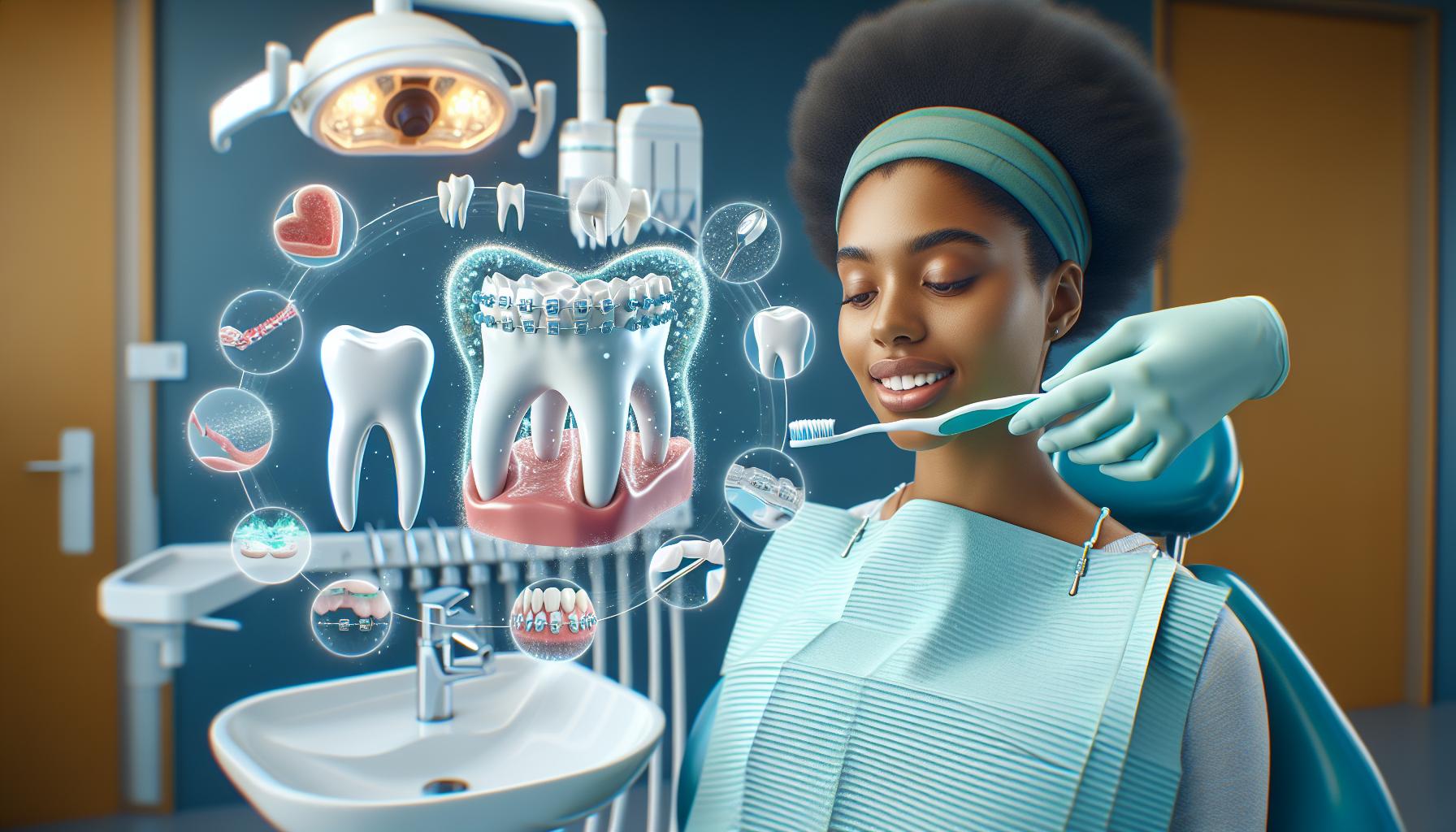
Brushing your teeth before bed is a small task that carries massive importance for your oral health. Failing to establish this habit can lead to a host of dental issues, from cavities to gum disease. Actually, nighttime brushing is critical as it removes food particles and bacteria that accumulate throughout the day. If you’re struggling to make this essential practice a consistent part of your nightly routine, consider these effective solutions to help you turn it into a habit.
Establish a Consistent Routine
One of the best ways to make brushing your teeth a nightly habit is by linking it to an existing routine. Just as you might take off your shoes and put on your pajamas, incorporate brushing right before these end-of-day activities. As a notable exmaple, you could create a sequence such as:
- Finish dinner
- Prepare your evening skin care routine
- Brush your teeth
- Read a book or watch a show before sleep
By consistently following this sequence, you’ll train your brain to associate these activities with brushing your teeth, making it significantly easier to remember.
Visual Reminders
Sometimes,a simple visual cue can work wonders in reinforcing your habits. Placing your toothbrush in a prominent location, such as next to your bed or on your pillow, can serve as a reminder. every time you see it, you’ll be nudged to brush. This strategy is particularly effective as it taps into the psychology of cues and triggers—an essential component for developing habits.
Positive Reinforcement
Reward yourself for successfully brushing your teeth every night for a week, a month, or any timeline that suits you. This could be as simple as treating yourself to a new book or enjoying a special dessert on weekends. By planning a reward for consistently brushing before bed, you’re effectively creating a positive association with this essential task, reinforcing the habit further.
Tracking Your Progress
you might also consider tracking your progress using a chart or a mobile app dedicated to habit tracking. This not only helps you keep accountable but also visualizes your achievements, encouraging you to maintain your newfound healthy practice. For example, a simple rewards table might look like this:
| Days Brushed | Reward |
|---|---|
| 7 Days | Watch an extra episode of your favorite show |
| 14 Days | buy a new book |
| 30 Days | Enjoy a special treat |
By turning brushing before bed into a rewarding experience, you increase your likelihood of maintaining this crucial habit.
Ultimately, integrating nighttime brushing into your daily routine requires creativity and consistency. By establishing a structured approach, using visual reminders, and reinforcing your progress with positive incentives, you can effectively combat the risks associated with not brushing your teeth at night and foster a healthy oral care regimen that lasts a lifetime.
Effective Prevention: Tips for Keeping Your Smile Healthy
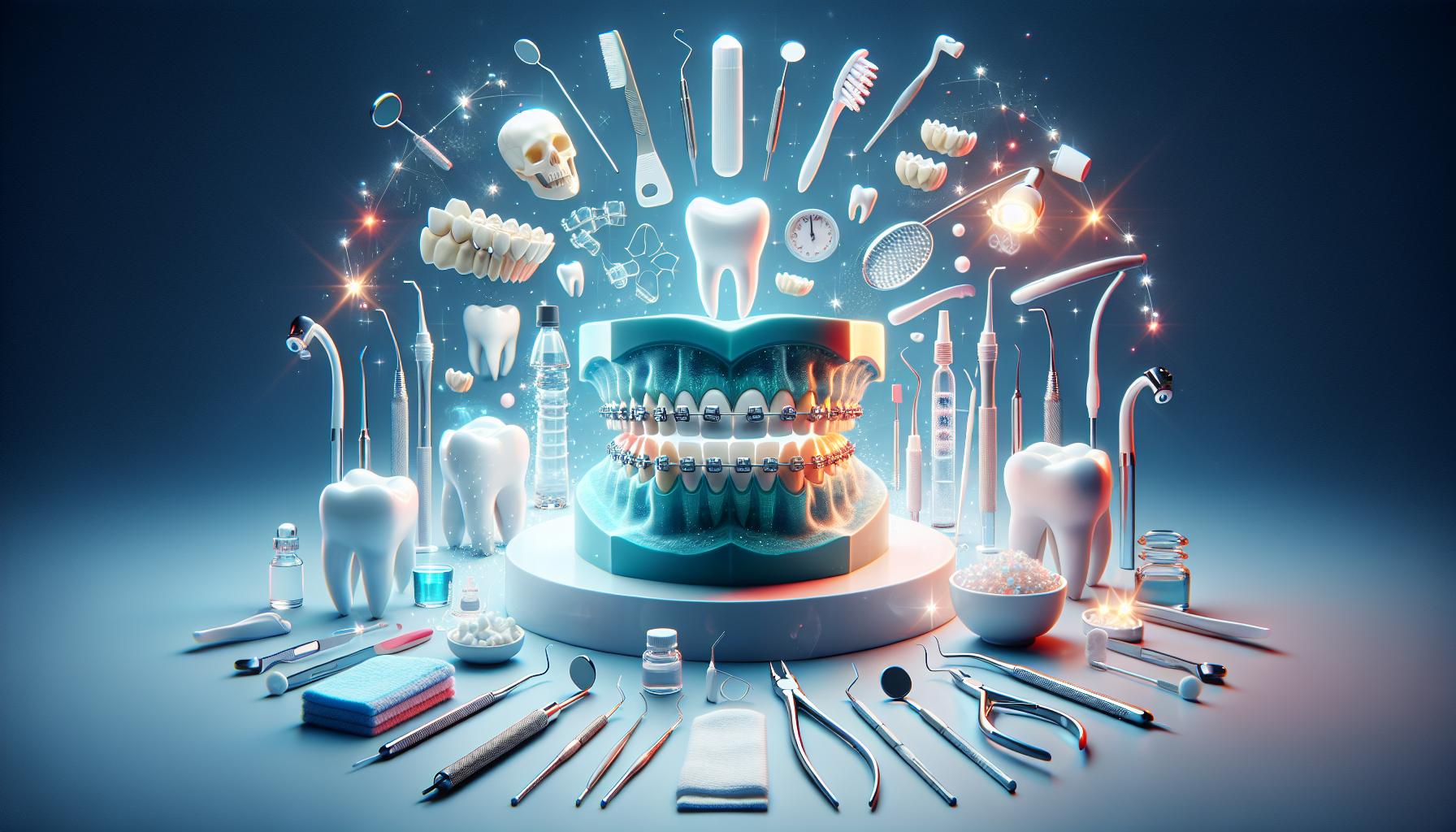
The importance of maintaining oral hygiene cannot be overstated, especially when it comes to bedtime routines. Skipping brushing at night can have significant repercussions that extend beyond just your oral health. Plaque can build up overnight, leading to cavities and gum disease if not adequately removed—a situation that can be easily remedied with some simple yet effective habits. by integrating a few key practices into your nightly routine, you can safeguard your smile and enhance your overall health.
Prioritize Your Nightly Routine
One of the simplest ways to protect your teeth is by establishing a consistent oral hygiene routine before bedtime. Make it a habit to brush your teeth thoroughly for at least two minutes, focusing on each quadrant of your mouth. Additionally, flossing helps maintain gum health by removing food particles and plaque between teeth that your toothbrush may miss. Incorporating mouthwash can also provide an extra layer of protection against harmful bacteria. Consider these essential steps:
- brush Twice daily: Make sure to include both morning and night sessions.
- Floss: Use dental floss or interdental cleaners to reach tight spaces between teeth.
- Mouthwash: Rinse with fluoride mouthwash to strengthen enamel and combat bad bacteria.
Diet Matters
Your dietary choices also play a crucial role in your oral health. Foods high in sugars and acids can contribute to tooth decay, especially when consumed right before bed. If you indulge in snacks in the evening,opt for healthier choices that are less likely to harm your teeth,such as nuts or cheese. Drinking plenty of water, especially after eating, can help wash away harmful remnants. Consider the following food choices:
| Healthy Snack ideas | Why They Are good |
|---|---|
| Cheese | Rich in calcium, it helps strengthen teeth. |
| Yogurt | Contains probiotics, promoting gum health. |
| Raw Vegetables | Crunchy texture helps naturally cleanse teeth. |
| Nuts | Full of healthy fats and includes minerals beneficial for oral health. |
Regular Dental Visits
No amount of at-home care can replace the importance of professional dental cleanings and check-ups.Regular visits to your dentist can help alleviate potential problems before they escalate. typically, adults should schedule dental check-ups every six months, but those with existing dental issues may benefit from more frequent visits. This proactive approach not only keeps your teeth and gums healthy but also ensures that you are well-informed about your oral health status.
Incorporating effective prevention tips into your daily life is crucial for maintaining a healthy smile. By prioritizing your nighttime routine, being mindful of your diet, and visiting your dentist regularly, you can combat the risks associated with not brushing your teeth at night. Taking these steps will not only enhance your oral health but also contribute positively to your overall wellness.
When to Seek Professional help: Understanding Dental Visits
When convenience trumps oral hygiene,many people find themselves skipping that important evening ritual of brushing their teeth. however, neglecting to brush at night can quickly lead to a cascade of dental issues, ranging from routine plaque buildup to more serious conditions like cavities and gum disease. Understanding when to seek professional help is crucial for anyone grappling with the consequences of inconsistent dental care.
The Importance of Regular Dental Visits
Regular dental visits serve as a vital line of defense against the negative effects of not brushing your teeth at night. These appointments are not just for emergencies; they are essential for preventive care that can save you time,money,and discomfort in the long run. The American Dental Association recommends visiting your dentist at least twice a year for comprehensive checkups and professional cleanings. during these visits, a dental hygienist will perform a thorough clean, removing plaque and tartar that home hygiene efforts might miss. This professional scaling helps prevent tooth decay and gum disease, especially in individuals who struggle with nightly brushing habits [1].
Identifying Warning Signs
There are specific indicators that might suggest the need for a dental appointment, especially if you’ve been neglecting nighttime brushing. Pay attention to the following signs:
- Persistent Bad Breath: If your breath remains foul despite brushing, it may indicate the presence of bacteria and plaque buildup.
- Bleeding Gums: Noticeable bleeding when you brush or floss can signal gum disease.
- Tooth Sensitivity: Feelings of discomfort when consuming hot or cold food could indicate enamel erosion or cavities.
- Tooth Pain: Any persistent pain should be addressed immediately, as it could indicate decay or infection.
ignoring these symptoms can lead to more severe complications and costly treatments later. Regular dental visits can help intercept issues early, ensuring that your dental health is maintained [2].
What to Expect During Your Visit
Knowledge of what happens during a dental visit can help alleviate anxiety. Generally, the appointment will include a comprehensive examination, where the dentist assesses not only your teeth but also your gums and jaw. An X-ray may be taken to identify any underlying issues not visible to the naked eye. Following this assessment,a dental hygienist will perform a professional cleaning—removing stubborn plaque and tartar—before discussing necessary steps forward,which may include further treatment options if any issues are identified [3].
Maintaining a consistent schedule of professional dental visits is essential, especially if you find yourself behind on your nightly brushing routine. This proactive approach is instrumental in reversing some of the potential damage caused by skipping this nightly habit, enabling you to maintain a healthy smile.
The Role of Nutrition: Foods that Support Oral Health
Eating a balanced diet is vital not only for your overall health but also for maintaining strong teeth and healthy gums. The foods you choose can either bolster your oral health or set the stage for dental problems, especially if you find yourself skipping nighttime brushing. Discovering the right nutrition habits can help mitigate some risks associated with neglecting your oral hygiene routine.
Essential Nutrients for Oral Health
A variety of nutrients play crucial roles in dental health.Here are some critically important categories and their benefits:
- Calcium: Vital for strong bones and teeth; dairy products, leafy greens, and fortified plant-based milk are excellent sources.
- Phosphorus: Works with calcium to build bones and teeth; found in proteins like fish, meat, and dairy.
- Vitamin C: Supports gum health and helps to prevent gum disease; citrus fruits, strawberries, and bell peppers are rich sources.
- Fiber: High-fiber foods help keep your gums stimulated and can aid in removing food particles from teeth; fruits,vegetables,and whole grains are great choices.
- Fluoride: While not a food, fluoride is critically important for preventing cavities—consider consuming fluoridated water or using toothpaste with fluoride.
When you find yourself skipping evening routines like brushing your teeth, it becomes crucial to focus on these nutrient-packed foods. They can help fortify your mouth’s defenses against bacteria and plaque buildup. For example, incorporating crunchy vegetables like carrots and celery can act as a natural toothbrush, promoting saliva production that helps wash away food particles.
Foods to Embrace for Better Oral Health
Make a conscious effort to include specific foods that actively support oral health:
| Food | Benefits |
|---|---|
| Dairy Products | High in calcium and phosphorus to strengthen teeth |
| Leafy Greens | Rich in vitamins and minerals; promote overall health |
| Nuts and Seeds | Provide healthy fats and help reduce inflammation |
| Lean Proteins | Support tissue repair and help build strong teeth |
| Berries | High in antioxidants and vitamin C; combat gum disease |
Incorporating these foods into your diet can not only support your dental health but also counteract the effects of infrequent brushing, a common risk associated with neglecting nightly oral hygiene. Remember, while food plays a significant role in maintaining oral health, it is essential to combine good nutrition with an effective oral hygiene regimen for the best results. By being mindful of what you eat, you nurture your smile even when brushing doesn’t happen as scheduled.
FAQ
### What are the risks of not brushing your teeth at night?
Skipping your nighttime brushing can lead to several health risks, primarily associated with the build-up of plaque on your teeth. Plaque is a sticky film of bacteria that can harden into tartar if not removed regularly. The accumulation of plaque and tartar can cause cavities, as these bacteria produce acids that erode tooth enamel. Over time, untreated cavities may result in deeper dental issues requiring fillings, root canals, or even tooth loss.
Additionally, neglecting your oral hygiene at night can increase the risk of gum disease, commonly known as periodontal disease. This condition begins with gingivitis, characterized by red, swollen gums that bleed easily. If gingivitis is left untreated, it can progress to more severe periodontal disease, which can damage the bone supporting your teeth, leading to tooth mobility and loss. According to the CDC, maintaining a regular brushing and flossing routine plays a crucial role in preventing such diseases and ensuring long-term oral health [[[[[1]].
### How does overnight plaque build-up affect oral health?
overnight, when saliva production decreases, the mouth becomes more acidic, creating ideal conditions for bacteria to thrive. If you do not brush your teeth before bed, the plaque that formed throughout the day remains on your teeth, allowing these bacteria to multiply. This build-up can lead to various problems, including tooth decay and bad breath, commonly referred to as halitosis.
Moreover, persistent plaque can contribute to more severe health issues beyond just oral health.The bacteria from gum disease can enter the bloodstream and may be linked to systemic problems such as heart disease and diabetes. A study indicated that individuals with periodontal disease are at a higher risk for heart disease, emphasizing the connection between oral health and overall health [[[[[2]]. Thus, regularly brushing at night helps to minimize these risks and promotes a healthier lifestyle.
### What remedies can definitely help if you’ve skipped brushing at night?
If you happen to skip brushing your teeth at night, there are a few strategies you can employ to mitigate the effects.First, try to drink plenty of water to help rinse away some of the built-up bacteria and food particles in your mouth. Staying hydrated encourages saliva production, which naturally helps protect your teeth and gums.
When you wake up the next day, make it a priority to brush as soon as possible. Use fluoride toothpaste and don’t forget to floss! Flossing removes any food particles stuck between your teeth that brushing might miss. additionally, consider using a mouthwash, especially one that contains antibacterial properties, to further reduce oral bacteria and freshen your breath. Taking these simple steps can significantly reduce the negative impacts of skipping a night of brushing and help you get back on track [[[[[3]].
### How can I make brushing my teeth at night a habit?
Creating a consistent nighttime brushing habit takes some planning and commitment. Start by setting a specific time for brushing your teeth as part of your nightly routine. This could be right before bed or right after washing your face—whatever fits best into your schedule. Consistency is key, so try setting reminders on your phone or using a habit-tracking app to stay motivated.
To make the experience more enjoyable, consider investing in a toothbrush that you find pleasant and effective.Experiment with various flavors of toothpaste to find one you really like, as this can make brushing feel less like a chore and more like a treat. Furthermore, pair brushing with another pleasurable activity, such as listening to music or a podcast, to associate the routine with positive feelings.
### Can mouthwashes and other products help if I forget to brush?
Absolutely! While nothing replaces the effectiveness of brushing and flossing, mouthwashes can provide supplemental benefits if you forget to brush your teeth. An antibacterial mouthwash can temporarily reduce plaque bacteria and help freshen your breath. Look for products containing chlorhexidine or cetylpyridinium chloride to maximize effectiveness.
Chewing sugar-free gum can also be beneficial.It stimulates saliva production,which helps to wash away food particles and neutralize acids in your mouth. If you’re out and about and know you won’t be able to brush, having these alternative products on hand can definitely help maintain your oral hygiene temporarily until you can brush properly. Still, aim to resume your usual brushing routine as promptly as possible to keep your oral health on track.### What long-term effects can result from poor nighttime oral hygiene?
The long-term effects of neglecting nighttime oral hygiene can be quite severe. Ongoing plaque and tartar build-up can lead to chronic gum disease, an issue that affects a significant portion of the population.Over time,this can result in tooth loss,increased sensitivity,and possibly the need for extensive dental procedures,which can be costly and time-consuming.
Furthermore, research suggests a strong link between periodontal disease and systemic health conditions, including cardiovascular diseases, diabetes, and respiratory illnesses. Maintaining good oral hygiene,particularly at night,is essential not just for preventing dental issues but also for supporting overall health. Investing a few minutes each night in your oral care routine will pay off tremendously in the long run, improving both your dental health and quality of life.
To Conclude
Conclusion: Understanding the Risks and Remedies of Not Brushing at Night
skipping your nightly brushing can lead to several oral health issues, including cavities, gum disease, and bad breath. Here’s a swift recap of the key points:
- Risks of Not Brushing: Neglecting your nighttime routine allows plaque to build up, increasing the risk of tooth decay and gum problems.
- Immediate Consequences: you may experience discomfort, bad breath, or even a plaque buildup that requires professional dental cleaning.
- Long-term Effects: Over time, the neglect can result in serious dental issues, potentially requiring costly treatments.
Remedies to Maintain Oral Health
- Establish a Routine: Set a clear time each night dedicated to brushing to make it a habit.
- use the Right Tools: Invest in a good toothbrush and toothpaste to enhance your oral care.
- Stay Informed: Keep yourself updated on the benefits of good oral hygiene and seek dental advice regularly.
Taking a few minutes each night to brush your teeth can save you from future pain and costs. It’s also a simple way to maintain confidence in your smile.
Call to Action
Are you ready to prioritize your oral health? start tonight by brushing your teeth, and explore more about dental hygiene practices. Stay tuned for our upcoming articles for tips and tricks on maintaining a healthy lifestyle. Your smile deserves the best care!




